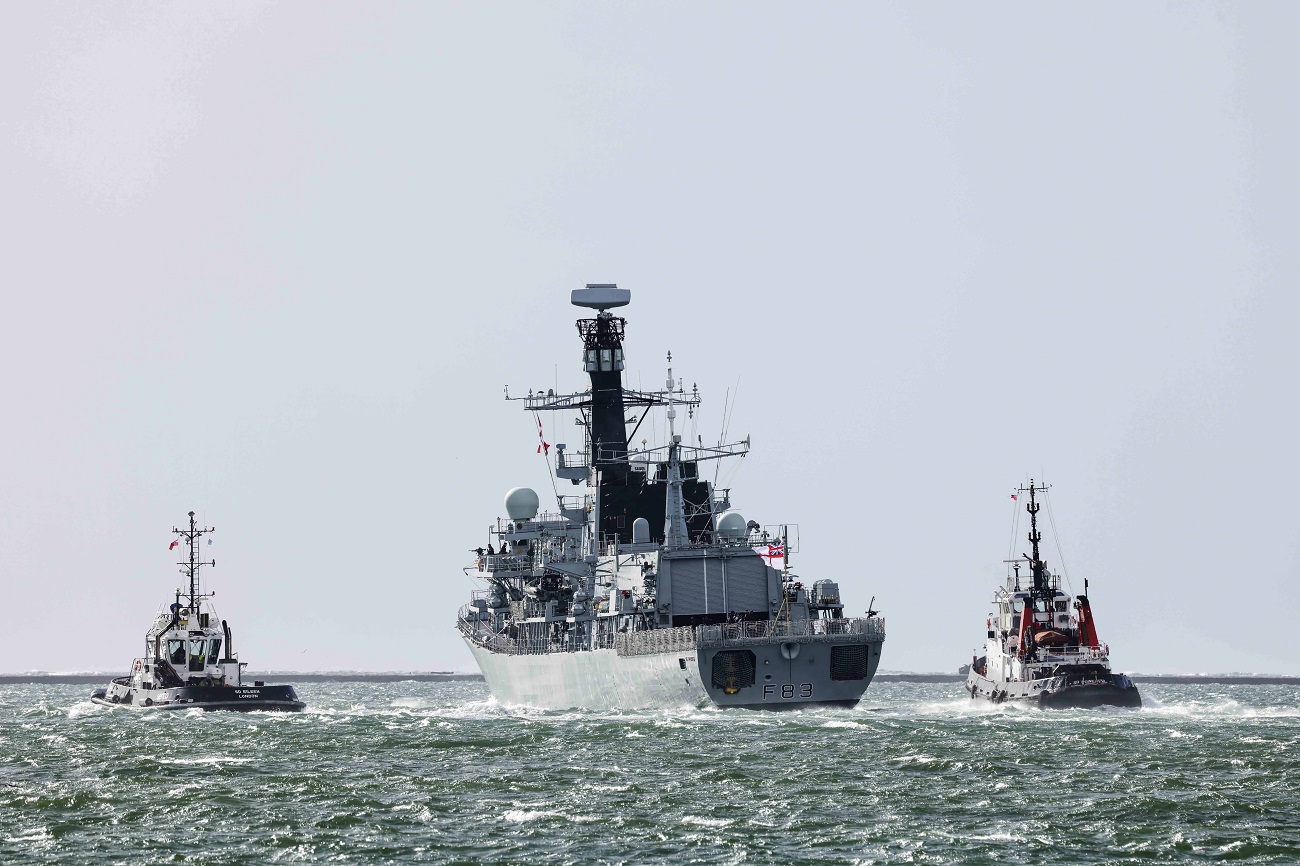Babcock has delivered Type 23 frigate HMS St. Albans (F83) back to the Royal Navy for sea trials three months ahead of the planned schedule, following an extensive and comprehensive refit. Once her current sea trials are completed, HMS St. Albans, with her 178-strong crew, will return to sea as the most advanced, equipped, and capable Type 23 frigate in the Royal Navy’s fleet, boasting next-generation weapons systems and radar. During her time in dock, skilled Babcock engineers and other tradespeople spent around 1.2 million working hours carrying out a significant number of updates and upgrades to keep the platform at the leading edge of warfighting capability, including a substantial power generation and machinery upgrade, the removal, overhaul and replacement of both propulsion motors, and finally stripping and repainting her entire hull. Crew facilities have also been improved and modernised to support the personnel living on board.
Commanding Officer of HMS St. Albans, Commander Helen Coxon, said:“Going back to sea is a huge milestone and the result of a real team effort where Ship’s Company, DE&S, Babcock and other specialist contractors, have come together to help us transition from engineering project back to being a warship. Whether it was the first day at sea – as was the case for many of our less experienced sailors – or returning back to where we feel at home for the more experienced, sailing from Devonport was a big day and we’d like to thank all those involved in making it happen.”

Gary Simpson, Managing Director of Babcock’s Marine Support business, said:“Working on behalf of DE&S, preparing HMS St. Albans for sea again is central to ensuring our customer’s critical services are readily available, affordable, and long-lasting. Our skilled teams of engineers, fabricators, technicians, and other experts, with the support of DE&S, the Royal Navy and specialists in our supply chain, worked tirelessly to ensure the complex and extensive refit of HMS St. Albans was a resounding success. Watching her leave for sea trials was a proud moment for everyone involved.”
HMS St Albans is a Type 23 frigate of the Royal Navy. The Type 23 frigate or Duke class is a class of frigates built for the United Kingdom’s Royal Navy. She is the sixth ship to bear the name and is the sixteenth and final ship in the ‘Duke’ class of frigates. She is based in Devonport, Plymouth. The ship was launched on the River Clyde on Saturday 6 May 2000. She was built at BAE Systems’ Yarrows Yard in Scotstoun, Glasgow. St Albans entered refit in Devonport in July 2019, led by Babcock defence firm. Her refit required around 1.2 million working hours and involved replacing all four diesel engines, installing LED lighting, adapting the ship for the future anti-surface guided weapon system Sea Venom, replacing the original Sea Wolf air defence system with Sea Ceptor, upgrading the ships sensors with the new Type 997 Artisan air-search radar and fitting the submarine-hunting Type 2150 Sonar in place of 2050. St Albans is now the Royal Navy’s most advanced frigate, thanks to these improvements.
Babcock is extending the operational life of the Royal Navy’s Type 23 Class Frigates to operate well beyond their original design life expectancy. Working with the Royal Navy through the Surface Ship Support Alliance, we are ensuring that the Type 23 Class remains relevant against today’s threat, and de-risking its future transition. Entering service for the first time in 1989, the Type 23 Frigate has proven itself a highly capable platform. With its replacement, the Type 26 Global Combat Ship, not set to enter service until later this decade, the Type 23 Class must operate beyond its original design life. Working closely with our customer to understand their requirements, and collaborating with the other members of the Alliance, the company ensure successful delivery of the Type 23 Life Extension (LIFEX) programme, maximising platform availability















